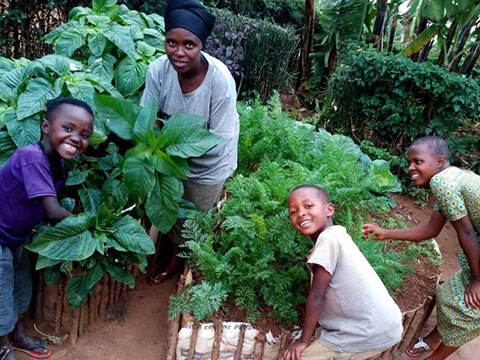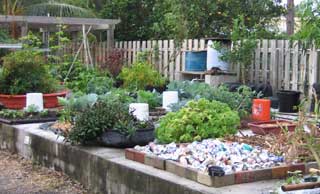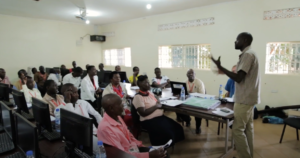Agriculture has long been recognized as a cornerstone of economic growth, livelihood, and food security. Yet its traditional methods often pose environmental challenges and inequalities for small-scale farmers.
To address this, the concept of sustainable farming practices has arisen. These practices focus on maximizing crop yields, protecting the environment, social equity, and economic stability. Here at ECHO, the mission is simple – to change lives by addressing hunger at its roots and fostering self-sufficiency for small-scale farmers worldwide.
So, What is Sustainable Farming?
In simpler terms, sustainable farming is an approach to agriculture that aims to meet the current food production needs while ensuring the viability of natural resources. Fundamental principles of sustainable farming include:
- Soil Health: To reduce the need for chemical fertilizers and pesticides, adopting practices that maintain soil health is essential. These practices involve crop rotation, cover cropping, and minimum tillage.
- Water Conservation: Several efficient irrigation methods are employed to conserve water resources and minimize water wastage. These methods include water recycling and rainwater harvesting techniques.
- Biodiversity: Biodiversity can be promoted by planting diverse crops, preserving natural habitats, and avoiding monoculture farming. It will also support natural pest control.
- Energy Efficiency: Sustainable farming uses renewable energy sources and optimizes farm operations. Therefore, it reduces energy consumption.
Impact on Poverty Alleviation
Sustainable farming practices can reduce poverty and hunger by improving smallholder farming incomes, food security through diversified crops, and conserving natural resources.
- Improved Food Security: Sustainable farming enhances food security by promoting diverse crops, preserving biodiversity, and reducing dependence on external inputs. It ensures a more resilient food system, reduces hunger, and strengthens communities’ ability to withstand crises.
- Empowerment of Women and Youth: Sustainable agriculture empowers women and youth by providing them with training, resources, and leadership opportunities. Women farmers, in particular, play a crucial role in poverty reduction, as they reinvest income in family welfare, education, and healthcare.
- Community Development: Sustainable farming fosters community development through cooperative models, knowledge sharing, and collective action. Farmer cooperatives, community-supported agriculture (CSA), and agroecology networks empower communities to address common challenges, access resources, and advocate for their interests.
Success Stories and Best Practices
- Agroecology Initiative in Rural Africa:
A community-led agroecology project in a rural African village implemented sustainable farming practices. These included diversified crops and established a local market for organic produce. The initiative increased incomes, reduced poverty rates, and improved nutrition for participating households.
2. Permaculture Farming in Southeast Asia
Several small-scale permaculture farms in Indonesia demonstrated the benefits of regenerative agriculture, soil conservation, and community engagement. These farms provided food security, restored degraded land, protected water sources, and promoted biodiversity.
Challenges and Opportunities
While sustainable farming holds promise for poverty alleviation, challenges such as access to resources, knowledge gaps, and policy support require collaboration from governments, NGOs, and the private sector. At ECHO, we aim to empower farmers by providing them with sustainable knowledge and tools necessary to enhance their lives and communities.
Conclusion: Nurturing Thriving Communities
Sustainable farming is not just about growing food; it’s about nurturing communities, empowering farmers, and creating a future of shared prosperity. At ECHO, we share knowledge and provide essential tools to farmers while improving food production and eliminating scarcity sustainably within their communities.
–
ECHO provides hope against hunger around the globe through agricultural training and resources. As a Christian technical networking and resourcing organization, ECHO builds a diverse, global network and serves that network by sharing validated contextualized agricultural options with technical excellence. ECHO’s goal is to serve its network members to advance food security and sustainable livelihoods. ECHO’s North American Regional Impact Center is located in Fort Myers, Florida with a global presence through four Regional Impact Centers in the USA, Thailand, Tanzania, and Burkina Faso. For more information about ECHO call 239-543-3246 or visit echonet.org or ECHOcommunity.org.













